On David Calder’s first day on the Kennebec River log drive in 1966, he and others were charged with clearing logs from behind the Abenaki Mill, the lower pulp mill at Madison Paper Co.
“We crawled down over this bark pile down to the river, and the river is quite quick there,” Calder, 66, of Canaan, remembered this week. “We took a boat across the river, and there was probably 100 cord of wood jammed into the ledges in high water. All day we hauled wood from that huge pile of pulp to the river and throwing it in, and that’s all we did for days on end.
“At the end of the day, I had all I could do to get up over that bank, and there was this old fella, Ernest Cramer, he reached down and grabbed me, pulled me up over the bank and said, ‘There, young fella … you’ll eat your beans and johnnycake tonight, won’t ya.’ ”
Calder was sold on a profession he loved.
But a decade after that – 40 years ago this spring – the centuries-old Maine tradition came to an end, the result of Mainers and the rest of America’s changing views on water pollution, recreation, paper making and highway transportation.
In 1976, change that had been coming for years finally arrived. That was the year of the last log drive down the Kennebec River from Moosehead Lake to The Forks, then all the way to the paper mill in Winslow and finally to Augusta and Hallowell.
“I didn’t want it to end, because I liked the job,” Calder said last week. “I liked being outdoors. I liked being on the river. I liked everything about it.”
MUSKIE’S ACT
That year, a modern new paper mill off U.S. Route 201 in Skowhegan, where pulp wood could be delivered by truck, was being built by Scott Paper Co. and would be completed a year later, a direct result of the federal Clean Water Act of 1972, ushered into law by U.S. Sen. Edmund Muskie, and a Maine law that banned log driving by Oct. 31, 1976.
The new Skowhegan paper mill, now Sappi Fine Paper, brought development, new homes, property taxes and jobs to the region.
Muskie, from Rumford, another mill town, knew what the mills added to the economy, but deplored what they did to the rivers.
The environmental impact and the discharges from the paper mills along the river brought the log drives to an end. Bark from the logs that settled on the river bottom caused pollution and killed fish. Logs in the river disrupted boaters, fishermen and canoeists.
The last log drive ended a way of life for Calder, who’d started as a 16-year-old in Skowhegan.
“In the spring of the year when we were hanging the booms, there was five or six of us on a crew,” Calder said.
Hanging the booms involved using long logs linked with chains to form a channel. Piers pointed thousands of cords of fir and spruce logs, cut in four-foot lengths, to sluice ways at dams along the Kennebec.
Some of the permanent piers can still be seen in the river from Fairfield to Gardiner. Calder said he and others would be sluicing – diverting the logs through a gate and over a dam – during the summer.
“Then in the fall, when we took up the rear, there would be 25 or 30 guys – 10 or 12 on both sides of the river, plus the guys in the boat,” he said.
Taking up the rear meant hauling logs that had drifted or got jammed on the shore and dragging or tossing them back into the river.
Logs were off-loaded to be milled in Winslow, and more continued down the river to Augusta.
“It was labor intensive, but the river did most of the work,” Calder said, noting that when he started the log drives on the Kennebec in 1966, he made $1 an hour working for the Kennebec Log Driving Co. of Skowhegan. Buster Violette was the drive foreman.
NEW ROADS
Roads were carved all over the Maine woods for trucks and machinery to do the work that streams, rivers and men had done for 200 years.
The Golden Road, a privately owned and mostly unpaved road that runs from Millinocket to the Quebec border, was built as a direct response to the end of the log drives down Maine rivers. Trucks and new roads changed the way wood was harvested and changed the scale of the volume of wood taken to mills, said Fred Michaud, a policy development specialist at the Maine Department of Transportation.
Michaud said wood was hauled primarily by water particularly in the North Maine Woods in the years before the log drives ended.
“Woods operations not having easy access to waterways and lakes trucked their product, but the pulp trucks of yore were the size of a wheeler dump truck and not the 100,000-pound trailer trucks used today,” he said. “One only has to compare a late 1970s DeLorme atlas with one of today to realize that roads have been built nearly everywhere to access the forest product. Again, one can infer that that increase has a corresponding increase in the number of trucks.”
Michaud said what used to be an army of workers working in the woods without a lot of trucking became a handful of machines doing most of the work. With more trucking came new and better ways to build roads, such as U.S. Route 201, which runs along the Kennebec River from The Forks to Augusta.
A CONSERVATIONIST’S LAWSUIT
The story of the end of the log drive has to include environmentalist Howard Trotsky, Calder said.
As a University of Maine aquatic biology graduate student in 1968, Trotsky studied trout in the Kennebec just below Wyman Dam, according to a 2003 University of Maine master’s thesis on the Kennebec River by Daniel Mitroch provided by the Muskie Foundation.
Trotsky noticed significant trout population declines and attributed it to the log drives and associated bark deposits. He used his riparian rights to initiate legal action against the largest contributor to the log drive, Scott Paper Co.
Despite being called a radical conservationist, Trotsky gained significant public support when he sued the company in November 1970 to have the logs removed. His case rested on the fact that he had the right to take his boat down river without hazard to navigation, according to the Mitroch thesis and historical archives.
In response to public opinion and the pending court case, the state of Maine passed an act in 1971 prohibiting log drives. In addition, log drives did not comply with the Clean Water Act because of the pollution the logs caused to the river. The company appealed the case two years later, but lost.
Send questions/comments to the editors.


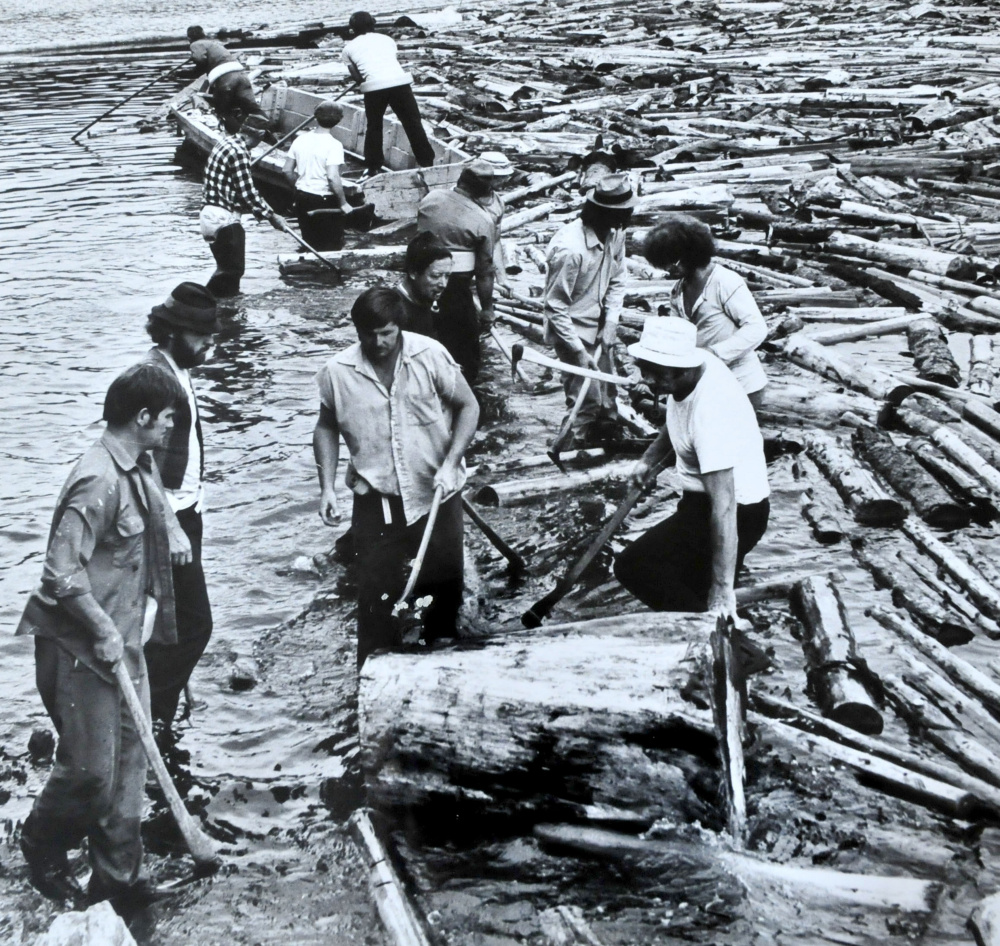
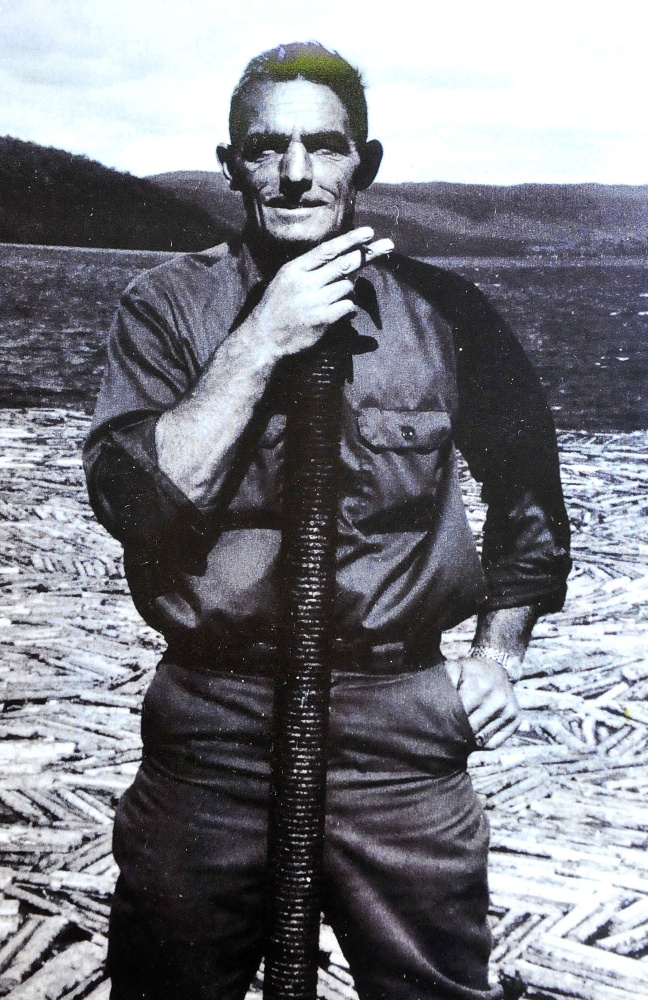
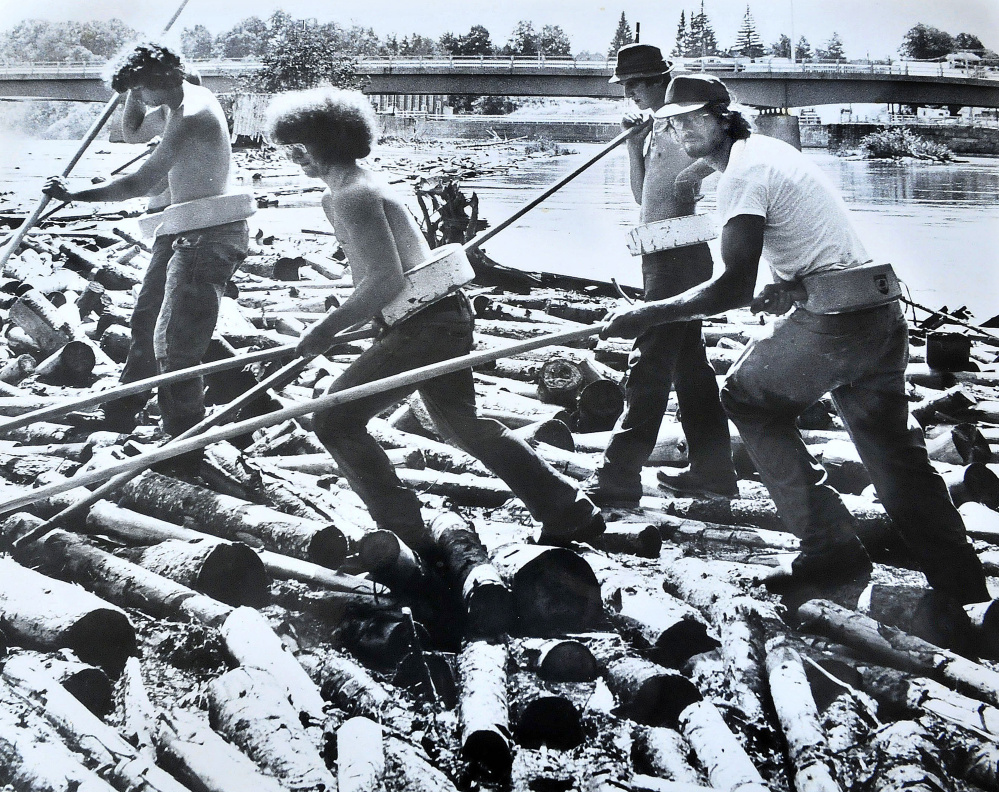
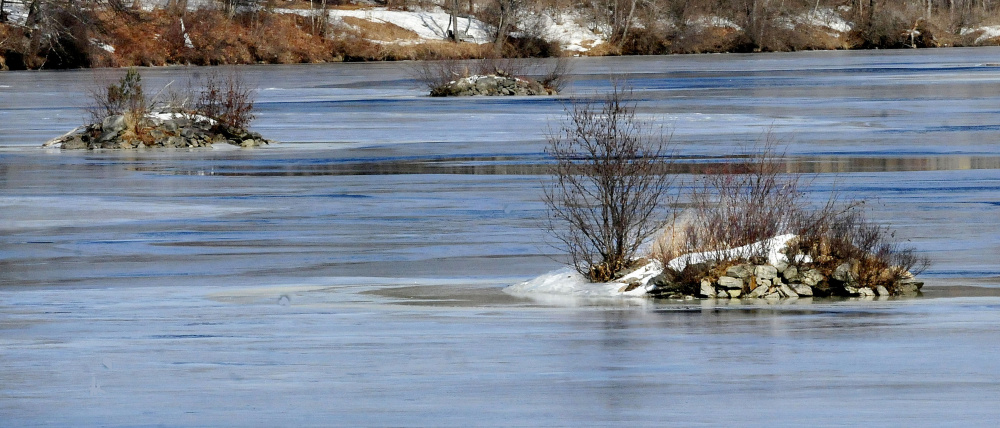
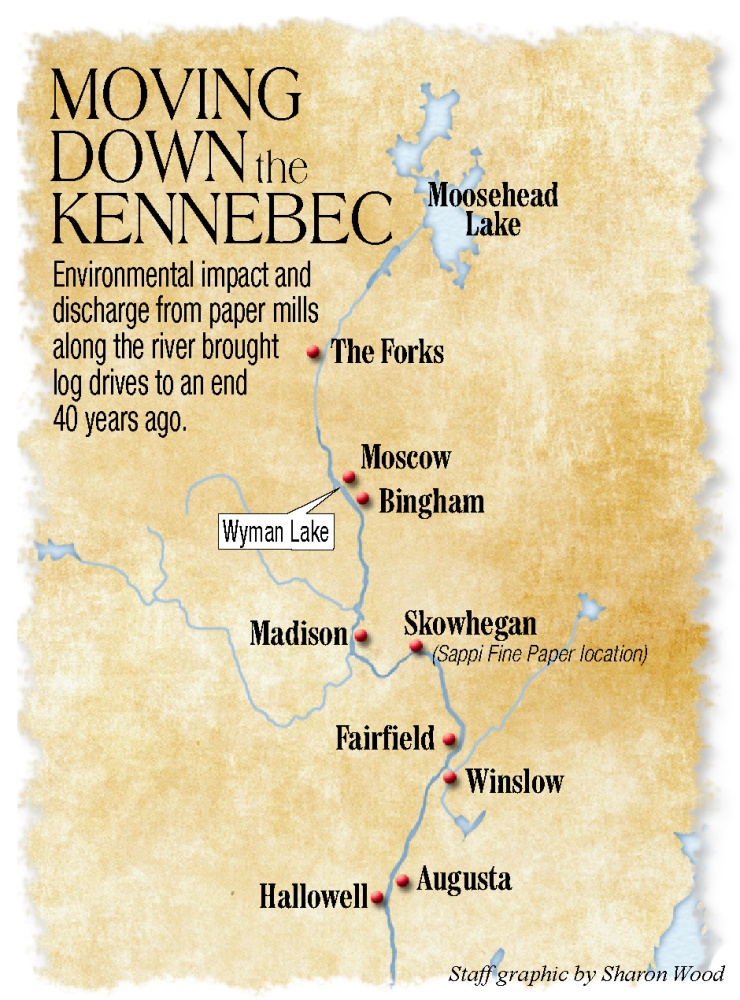



Comments are no longer available on this story